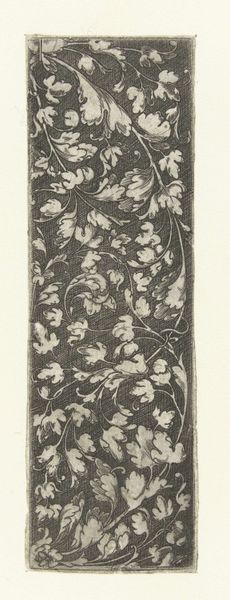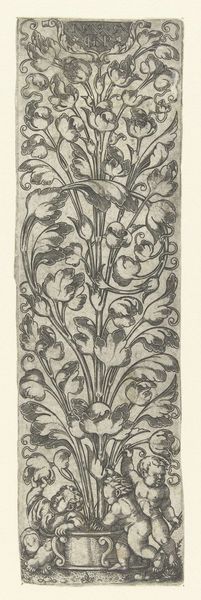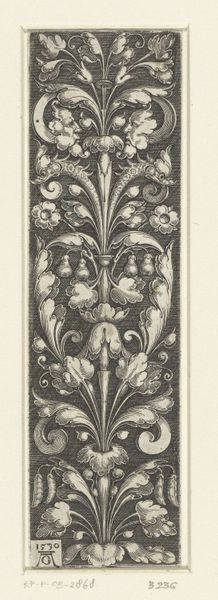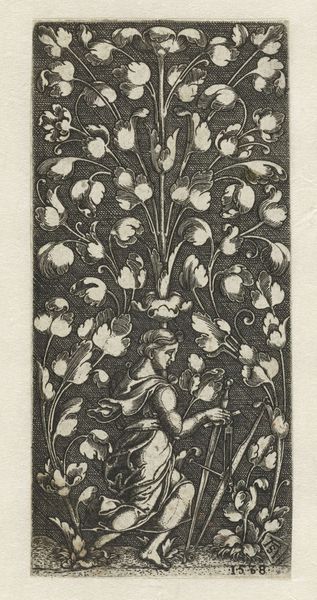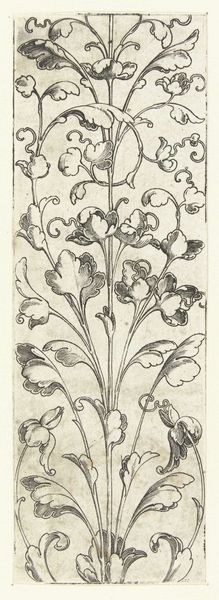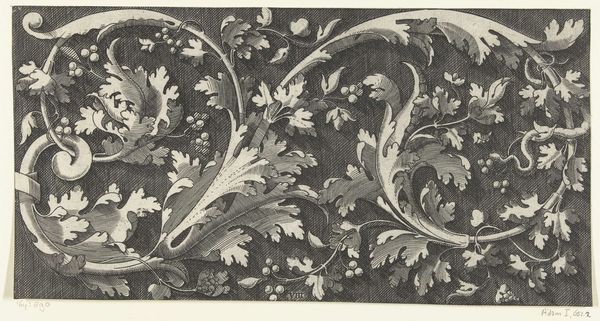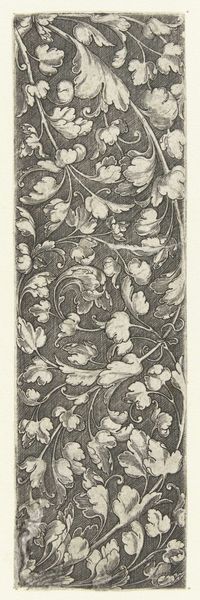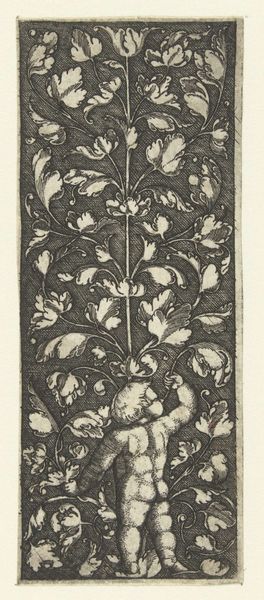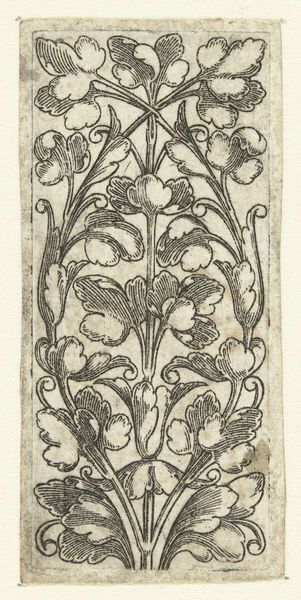
print, woodcut, engraving
# print
#
woodcut effect
#
figuration
#
child
#
linocut print
#
woodcut
#
line
#
history-painting
#
northern-renaissance
#
engraving
Dimensions: height 160 mm, width 43 mm
Copyright: Rijks Museum: Open Domain
Heinrich Aldegrever created this print, *Bladranken met twee kinderen,* using engraving techniques. Engraving is an intaglio process. The artist carves a design into a metal plate with a tool called a burin. The incised lines hold ink, which is then transferred to paper under high pressure. This print showcases Aldegrever’s mastery of the technique. Look closely and you’ll see how the varying thickness and density of lines create form, texture, and depth. Prints like this one played a crucial role in disseminating artistic ideas in the 16th century. They were relatively inexpensive to produce, making art accessible to a wider audience beyond the elite circles who could afford paintings or sculptures. The labor-intensive process of engraving was a skilled craft, requiring years of training and expertise. The resulting prints were both artistic objects and commodities, reflecting the changing relationship between art, labor, and consumption in the early modern period. Appreciating this print involves recognizing the social context of its creation and consumption, blurring the lines between craft and art.
Comments
No comments
Be the first to comment and join the conversation on the ultimate creative platform.
